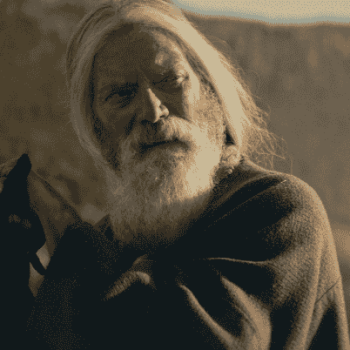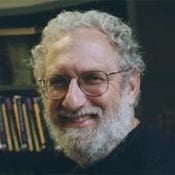Is there a yoga for the heart?Yes, and it's called prayer. And its power does not depend on faith in God or sacred texts, but on the passionate commitment of the person who prays. As Kierkegaard cautions: "Prayer does not change God, but it changes him who prays."
Prayers may be voiced in anguish or wrapped in silence, mumbled dutifully or constructed with care, put to melody or tears. They can be wordless, as Rabbi Abraham Joshua Heschel said when he marched for justice with Martin Luther King: "my feet were praying." Or as the Hasidic Rebbe Pinchas of Koretz reportedly counsels, "When things are so bad you cannot even recite psalms just sit and hold whatever it is up to God in silence."
The spiritual meaning of prayer is that it is yoga of the heart. In less poetic terms: it is a way to express and shape our emotional lives to a spiritual form.
Think for a moment of all the occasions for prayer: devotion and gratitude, hope for well-being and peace for ourselves and others, to celebrate the joys of life, for help in facing illness, war, or tragedy; that we ourselves become more honest, kind, and grateful.
In these times what we want or feel or hope for are paramount. And at these times prayer helps harness the unruly energies of desire and emotion into a direction that can serve us spiritually; that is, it can help channel our heart's longings toward acceptance and gratitude, compassion and love.
This is possible because spirituality asks us to walk a complex and often difficult path between two contrasting dangers. First, we need to accept and value our feelings. Unless we are fully enlightened (and so few people are these days) we will naturally have our share of petty resentments, self-centered desires, and nagging fears. Spiritual progress will be impeded if we deny these parts of ourselves.
Yet acceptance (not indulgence!) of our emotions is not the same as uncontrollably acting them out. Anger can be experienced without verbal or physical violence. Despair need not drive us to depression. Instead of mindlessly reacting to our emotions, we can, as spiritual psychologist Miriam Greenspan's teaches, "befriend" them rather than either exiling them as sinful and weak or mindlessly obeying them.
And here is where prayer comes in, for prayer is a way of focusing our emotional energy, giving verbal form to the rush of feelings that is coursing through our bodies and leading to compulsive patterns of thought. Those who believe in God can share their misery with the very source of Life and Goodness. They can feel that Someone is listening, even if She makes no reply—someone who cares about us but is so full of power and goodness that our suffering is no threat. Weeping and wailing, we can let it all hang out.
In prayer joy can be shared not as an ego-centered experience of "I got mine," but with a sense of deep appreciation for the wonder of life: grateful acknowledgement to the God of religion or to the miracle that life exists at all.
If we want to be morally stronger, prayer can help mold the typically muddled, inconsistent wish to be a better person into a focused, disciplined intention to become one. Having prayed to God to be more accepting or less wasteful, we are more likely to take the next steps to accomplish the psychological or practical work we need to do.
Certainly the vast amount of suffering that has been inflicted on innumerable prayerful victims of war, neglect, and injustice indicates that whatever God is, He is not a vending machine where prayers go in and answered wishes come out. Prayer is spiritual only because it helps us become more accepting of our suffering, more loving to others, and more faithful to the tasks we have been given (incurable illness, a painful divorce, poverty) without succumbing to bitterness.
An example: The Hebrew "sh'ma"—"Hear O Israel, the Lord our God, the Lord is One"—is a prayer I say every morning. As a person whose belief in the traditional concept of an all-powerful personal God is, to say the least, minimal, what am I doing when I say these words?
For me, religious or spiritual faith means faith that this life, with its pains and losses, its oppression and desecrations, is worth living. That despite everything, the good outweighs the bad. Or, if such a measurement is impossible, that I choose to value what is beautiful even if there is so much that is vile and deadening. But to value existence in this way I need first to see it in its totality—as the "one" which is Sacred, and which may be called "God." To see that I need to be as aware of death camps as beautiful sunsets, of children starving in the Sudan as much as new babies on my block, as all the species humans have wiped out as much as all the wondrous life forms that remain. To affirm the holiness of life in the face of evil—that is the challenge of the Sh'ma. And so when I chant the prayer I try to bring into my mind at the same time both evil and the wonders of life: children dying in refugee camps, the song of the robin, my wife's beautiful eyes, the latest statistics on pollution-induced cancer. And as these contrary images, and the feelings to which they give rise, pulse through my soul, to affirm, to have faith in, the whole—the One.





